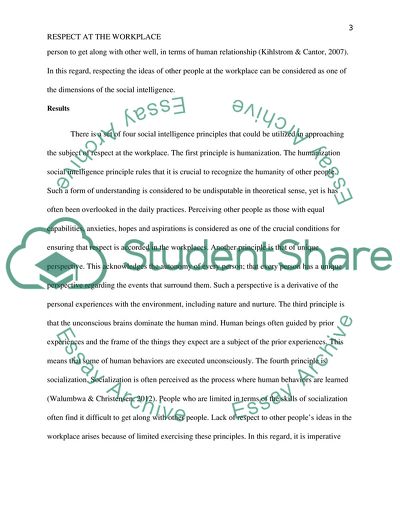Cite this document
(Effects for Expressing Respects for Others Ideas at Workplace: Asocial Intelligence Approach Research Proposal Example | Topics and Well Written Essays - 2000 words - 1, n.d.)
Effects for Expressing Respects for Others Ideas at Workplace: Asocial Intelligence Approach Research Proposal Example | Topics and Well Written Essays - 2000 words - 1. https://studentshare.org/education/1799893-positive-effects-for-expressing-respects-for-others-ideas-at-workplace
Effects for Expressing Respects for Others Ideas at Workplace: Asocial Intelligence Approach Research Proposal Example | Topics and Well Written Essays - 2000 words - 1. https://studentshare.org/education/1799893-positive-effects-for-expressing-respects-for-others-ideas-at-workplace
(Effects for Expressing Respects for Others Ideas at Workplace: Asocial Intelligence Approach Research Proposal Example | Topics and Well Written Essays - 2000 Words - 1)
Effects for Expressing Respects for Others Ideas at Workplace: Asocial Intelligence Approach Research Proposal Example | Topics and Well Written Essays - 2000 Words - 1. https://studentshare.org/education/1799893-positive-effects-for-expressing-respects-for-others-ideas-at-workplace.
Effects for Expressing Respects for Others Ideas at Workplace: Asocial Intelligence Approach Research Proposal Example | Topics and Well Written Essays - 2000 Words - 1. https://studentshare.org/education/1799893-positive-effects-for-expressing-respects-for-others-ideas-at-workplace.
“Effects for Expressing Respects for Others Ideas at Workplace: Asocial Intelligence Approach Research Proposal Example | Topics and Well Written Essays - 2000 Words - 1”. https://studentshare.org/education/1799893-positive-effects-for-expressing-respects-for-others-ideas-at-workplace.


